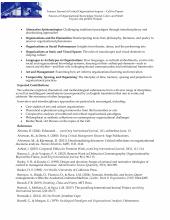David M. Boje
|
Graham Symon
|
Christopher Grey
Wyświetleń3585 Pobrań3935
|
Heather Hopfl
|
Steven S. Taylor
|
David Collins
|
Harry Hall
|
David B. Russell
|
Steven D. Brown
Wyświetleń2902 Pobrań1141
|
Helene Fine
|
David Currie; Gerard McElwee
|
Karin Berglund; Caroline Wigren
|





